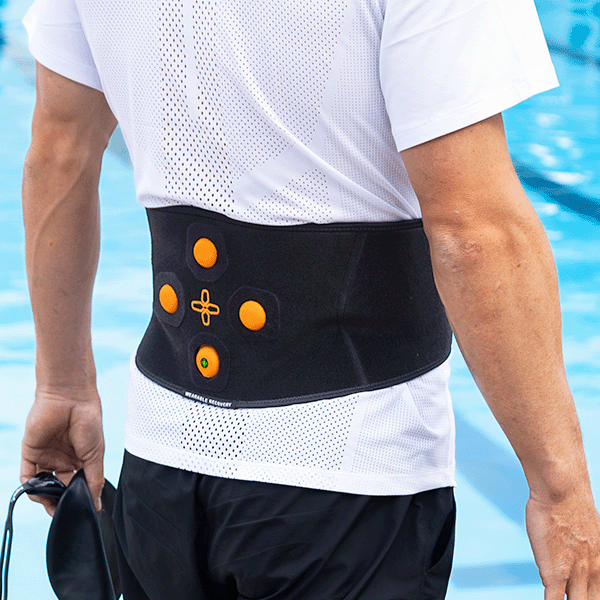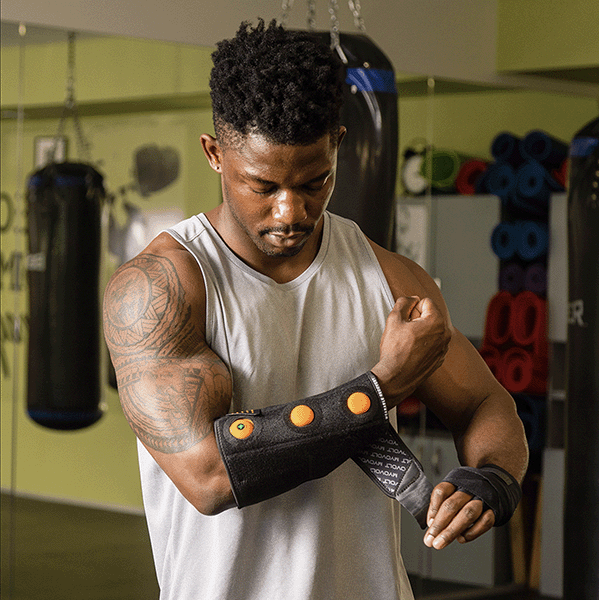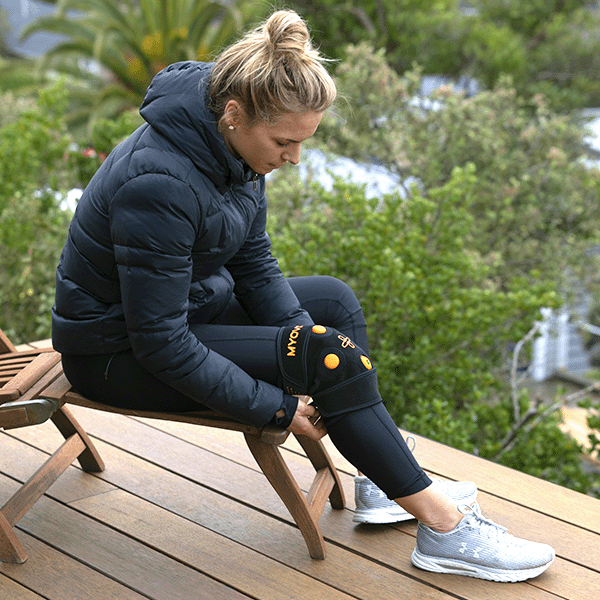Navigating the ups and downs.
Scott McDonald
Elite endurance athlete
Scott McDonald, Coast to Coast 2021, South Island, NZ
We talk to Scott McDonald on coming fifth - and finding help when things go wrong…
New Zealand’s iconic Coast-to-Coast event stands proudly as one of the world’s premier—and longest running—adventure races. The course speaks for itself: a grueling 243 km of running, biking, and kayaking, across the Southern Alps from the West to East coast of the South Island.
It’s certainly not for the ill-prepared or faint of heart, as Scott McDonald knows only too well!
This year, competing in his third Coast-to-Coast the thirty year-old from Tauranga crossed the line in fifth position, shattering his previous record by 30 minutes with a staggering time of 11 hours 38 minutes and 36 seconds.
For Scott, it was a perfectly executed race, the culmination of six months of intensive training, meticulous planning, and the generous support of his friends and family.
But in sharing his tips for success Scott also cautions one thing: come race day, anything can—and often does—happen!
“That's the incredible thing about this event, there's so much support and respect for the competitors.”
Overcoming disaster
This is a fact that Scott knows only too well when, two years ago, he suffered a tyre blow-out that very nearly halted him in his racing tracks.
“My support team had left my bike at my next check point and then gone ahead to get my kayak ready. My mum was waiting in the crowd and remembers hearing over the loud speaker that bike number 26 had a flat tyre. My tyre had gotten so hot waiting out in the sun that it had literally exploded!
“My mum totally panicked because she knew I was just about to arrive and there was absolutely nothing she could do!”
Amazingly other support crews got to work fixing Scott’s bike and it was ready and waiting for him when he ran in to change over.
“That’s the incredible thing about this event, there’s so much support and respect for the competitors. People are willing to help in any way they can because they know the shear amount of hard work that’s gone into just getting to the start line—I think my mum is still a little traumatised though!’
Scott's Tips for success
But even when everything does go to plan, completing the race in under 12 hours is not something you can do by simply rocking up on the day and hoping for the best!
On top of his intensive 20-hours-a-week training regime, Scott attributes his success to two crucial factors: thorough preparation and well-oiled support.
1. Seek out the wisdom
Find people who have already raced the Coast to Coast. Hunt them down and pick their brains, don’t underestimate the knowledge you can gain from their experiences—particularly if you’re new to the event
Inevitably, each year Scott witnesses fellow competitors who have completely underestimated the level of challenge that the race has to throw at them.
2. Know the course, train the course
Familiarise yourself with the course as much as possible before the race, particularly the river-running and kayaking sections as the rain and weather will change these from year-to-year.
Even with the obvious challenges of living in the North Island, Scott managed to traverse these sections five times pre-race. This was invaluable for his mental preparation and also for planning optimum routes that would save him time and energy on the day.
Scott McDonald at the finish line.
3. Support your support
First you’re running, then you’re biking, then you’re running again, at some point you know you’ll be kayaking. And all of this is only made possible by your trusty support team preparing your way out in front.
Don’t just plan your day, take pains to help them plan theirs. There are a couple of sections where timing is critically short, so make sure they know inside and out what you’ll need, where and when you’ll need it.
No pressure then!
4. Train your gut as well as your muscles
These days, it’s common practice to use energy gels and electrolyte powders to help sustain your body. But don’t leave this just for race day. It’s important to investigate what works best for your body, and practice getting it used to taking on sustenance under high physical stress.
Scott sticks to a strict nutrition plan for the duration of his race which sees him taking on some form of fluid or energy gel every twenty minutes. But even with this, he admits to almost vomiting towards the end of one of his races—"Your body is all over the place by that point!”
5. Arm yourself with dependable gear
After all your hard training, don’t be caught out by gear failure. There’s a lot to think through from clothing and foot wear, to water-carrying packs and nutrition. Test what works best for you and make sure you bring backups!
And this applies to training support too, you want to get to race day in peak physical condition. Scott found his Myovolt invaluable for supporting a few tricky issues with his calf-muscles that cropped up during training.
At the close of the race, one thing is always clear, that going Coast-to-Coast challenges more than just the individual. Scott acknowledges that he has a lot of people to be thankful for, “my whole family are there to support me both before and on the day….they’re definitely one of the biggest factors of my success.”
Thanks for sharing your tips with us Scott, all the best for the GodZone ten day adventure race in Rotorua in March.
Navigating the ups and downs.
Scott McDonald
Elite endurance athlete.
Scott McDonald, Coast to Coast 2021, NZ.
We talk to Scott McDonald on coming fifth and finding help when things go wrong…
New Zealand’s iconic Coast-to-Coast event stands proudly as one of the world’s premier—and longest running—adventure races. The course speaks for itself: a grueling 243 km of running, biking, and kayaking, across the Southern Alps from the West to East coast of the South Island.
It’s certainly not for the ill-prepared or faint of heart, as Scott McDonald knows only too well!
This year, competing in his third coast to coast the thirty year-old from Tauranga crossed the line in fifth position, shattering his previous record by 30 minutes with a staggering time of 11 hours 38 minutes and 36 seconds.
For Scott, it was a perfectly executed race, the culmination of six months of intensive training, meticulous planning, and the generous support of his friends and family.
But in sharing his tips for success Scott also cautions one thing: come race day, anything can—and often does—happen!
“That's the incredible thing about this event, there's so much support and respect for the competitors.”
Overcoming disaster
This is a fact that Scott knows only too well when, two years ago, he suffered a tyre blow-out that very nearly halted him in his racing tracks.
“My support team had left my bike at my next check point and then gone ahead to get my kayak ready. My mum was waiting in the crowd and remembers hearing over the loud speaker that bike number 26 had a flat tyre. My tyre had gotten so hot waiting out in the sun that it had literally exploded!
“My mum totally panicked because she knew I was just about to arrive and there was absolutely nothing she could do!”
Amazingly other support crews got to work fixing Scott’s bike and it was ready and waiting for him when he ran in to change over.
“That’s the incredible thing about this event, there’s so much support and respect for the competitors. People are willing to help in any way they can because they know the shear amount of hard work that’s gone into just getting to the start line—I think my mum is still a little traumatized though!’
Scott's tips for success.
But even when everything does go to plan, completing the race in under 12 hours is not something you can do by simply rocking up on the day and hoping for the best!
On top of his intensive 20-hours-a-week training regime, Scott attributes his success to two crucial factors: thorough preparation and well-oiled support.
1. Seek out the wisdom.
Find people who have already raced the Coast-to-Coast. Hunt them down and pick their brains, don’t underestimate the knowledge you can gain from their experiences—particularly if you’re new to the event
Inevitably, each year Scott witnesses fellow competitors who have completely underestimated the level of challenge that the race has to throw at them.
2. Know the course, train the course.
Familiarise yourself with the course as much as possible before the race, particularly the river-running and kayaking sections as the rain and weather will change these from year-to-year.
Even with the obvious challenges of living in the North Island, Scott managed to traverse these sections five times pre-race. This was invaluable for his mental preparation and also for planning optimum routes that would save him time and energy on the day.
Scott McDonald at the finish line.
3. Support your support.
First you’re running, then you’re biking, then you’re running again, at some point you know you’ll be kayaking. And all of this is only made possible by your trusty support team preparing your way out in front.
Don’t just plan your day, take pains to help them plan theirs. There are a couple of sections where timing is critically short, so make sure they know inside and out what you’ll need, where and when you’ll need it.
No pressure then!
4. Train your gut as well as your muscles.
These days, it’s common practice to use energy gels and electrolyte powders to help sustain your body. But don’t leave this just for race day. It’s important to investigate what works best for your body, and practice getting it used to taking on sustenance under high physical stress.
Scott sticks to a strict nutrition plan for the duration of his race which sees him taking on some form of fluid or energy gel every twenty minutes. But even with this, he admits to almost vomiting towards the end of one of his races—"Your body is all over the place by that point!”
5. Arm yourself with dependable gear.
After all your hard training, don’t be caught out by gear failure. There’s a lot to think through from clothing and foot wear, to water-carrying packs and nutrition. Test what works best for you and make sure you bring backups!
And this applies to training support too, you want to get to race day in peak physical condition. Scott found his Myovolt invaluable for supporting a few tricky issues with his calf-muscles that cropped up during training.
At the close of the race, one thing is always clear, that going Coast-to-Coast challenges more than just the individual. Scott acknowledges that he has a lot of people to be thankful for, “my whole family are there to support me both before and on the day… they’re definitely one of the biggest factors of my success.”
Thanks for sharing your tips with us Scott, all the best for the GodZone ten day adventure race in Rotorua in March.
Featured in this story
Great for recovering tired, overworked knees, quad, calf or hamstring muscles. The neoprene leg brace has an adjustable fit ...
Featured in story
Great for recovering tired, overworked knees, quad, calf or hamstring muscles. The neoprene leg brace has an adjustable fit ...



